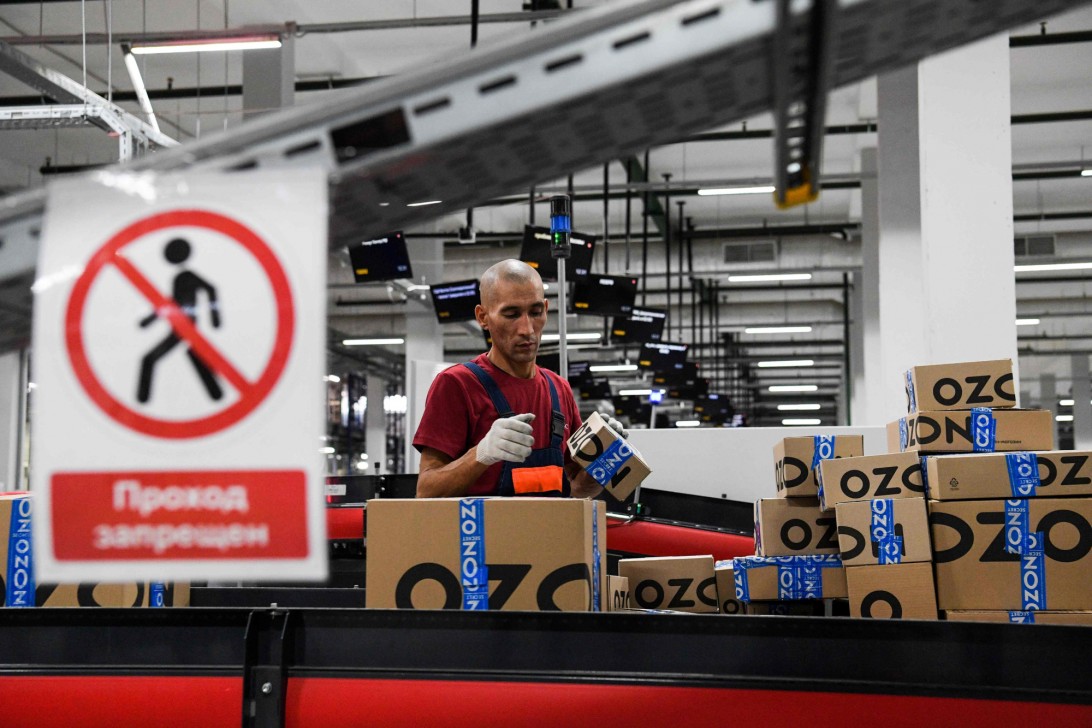Russian e-commerce booms despite economic doldrums

Moscow photographer Galina Goryushina says that online shopping has changed her life.
“I’ve got more time for myself,” said the 30-year-old freelancer.
“I don’t have to haul heavy shopping bags. And I don’t waste money on silly knick-knacks laid out on the store shelves,” said Goryushina.
The young woman began shopping online a decade ago when she could not find clothes she liked in Russia and now makes most of her purchases online.
Russia may be a latecomer to the world of online shopping but e-commerce is experiencing explosive growth in the country despite a stagnant economy weighed down by Western sanctions.
Russia’s economic growth stood at just 0.7 percent in the first six months of 2019.
Over the same period, the Russian e-commerce market has expanded by 26 percent to 725 billion rubles ($11.3 billion), according to a study by Data Insight, a Russian-based research agency.
The sector is developing rapidly despite numerous logistical challenges in the world’s largest country including an often unreliable postal service.
Long distances and low population density make e-commerce an appealing -- and sometimes even the only -- option in Russia.
Even in affluent Moscow, where shopping malls offer a huge variety of consumer goods, many prefer to shop online to avoid the ubiquitous traffic jams.
One of Russia’s biggest online retailers, Ozon, began as an online bookstore -- much like the global giant Amazon -- and later expanded into other types of merchandise.
On a recent tour of Ozon’s offices in Moscow’s business district, chief executive Alexander Shulgin said the potential for growth in Russia was enormous.
“I am absolutely confident that e-commerce will be absolutely huge in Russia, it’s transformative for the country,” he said, pointing to Russia’s high internet penetration, with 95 million online users.
In the first six months of this year, the number of online orders went up by 44 percent reaching 191 million.
Together with Russia’s biggest e-commerce site, Wildberries, and the online pharmacy Apteka.ru, the top trio’s business has grown by 107 percent compared to the first half of last year.
Shulgin said that online shopping offered Russians living in remote locations access to millions of products at affordable prices.
“It’s just phenomenal how e-commerce improves quality of life for people in small villages and towns,” he added.
Besides its huge size, Russia’s harsh climate is also seen as a boon for the business.
“When there is rain or snow or it’s cold outside, people prefer to shop online, so (Russia) is an ideal country,” he said.
Shulgin said the e-commerce market was fragmented and accounted for just 6 percent of total retail.
“So the opportunity for growth is huge,” he added.
In a logistics centre in the town of Tver, located around 180 kilometres (111 miles) northwest of Moscow, Ozon employees are busy pushing carts around aisles as they prepare to ship goods to customers across Russia.
“The centre handles over 100,000 packages a day and around 2,000 people work here on a daily basis,” said Ivan Popov, deputy logistics manager at Ozon.
In the cities, the company relies on couriers, automated pick-up lockers and drop-off locations.
To ship the packages to remote locations, Ozon has partnered up with the Russian Post.
